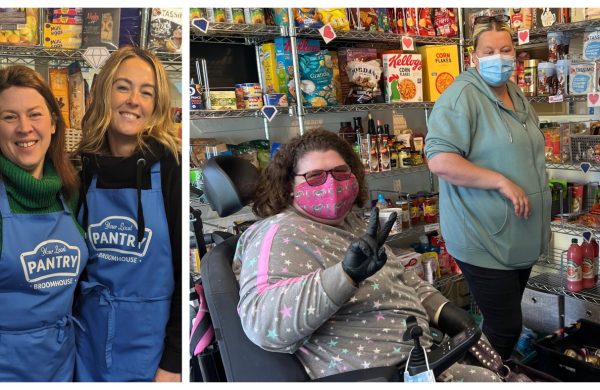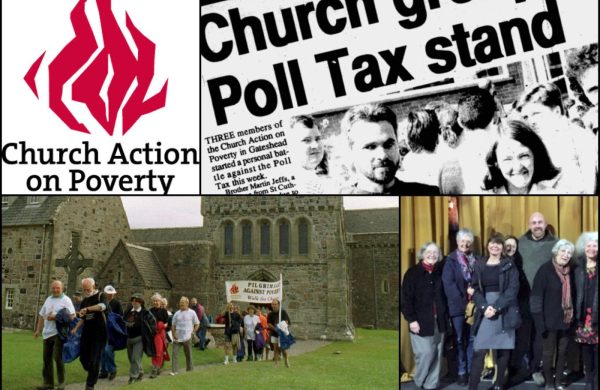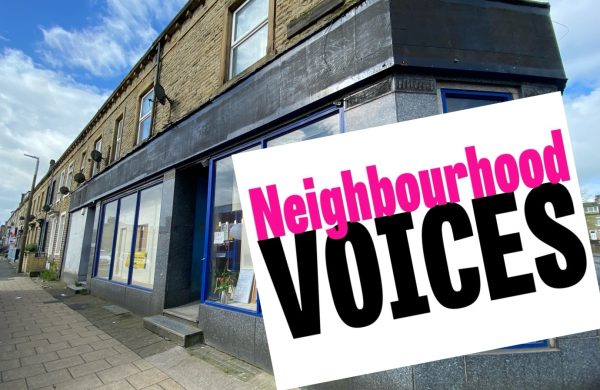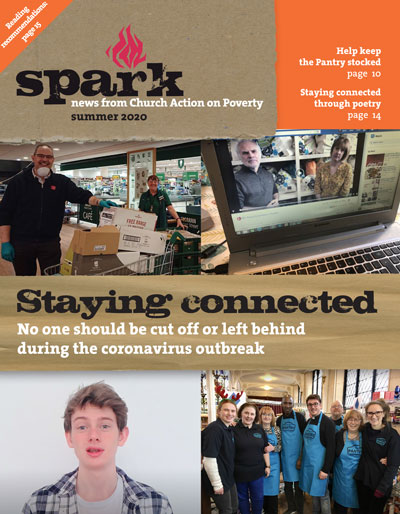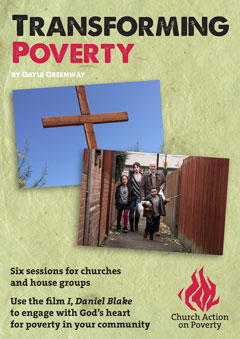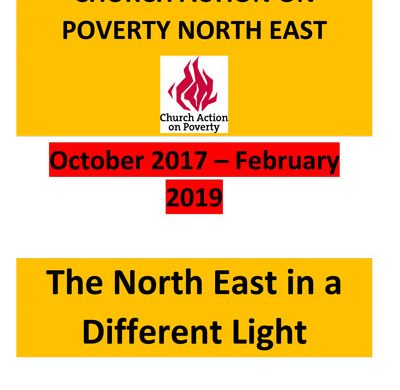Where are the margins?
A report from our 30 April online discussions on what it means to be church on the margins during the pandemic.
Reflection by Stef Benstead
What groups of people are on the margins? [people who lack the resources to change their situation]
- People with disabilities (currently difficult to access care)
- Travellers
- Migrants
- People suffering domestic abuse
- Children experiencing abuse
- People in care centres (cut off from society)
- People in food poverty
- LGBT+
- Homeless (new homeless in London – hospitality workers)
- Single parents
- People who are isolated/alone
- People with no access to technology
- Trans people
- People who have had difficult experiences of church
- People who are ‘othered’ – people who are talked about, not to.
- Black and minority ethnic people (disproportionately affected by the virus)
- Women
- Digital exclusion
- Addicts
- Prisoners/ex-offenders
- Destitute asylum seekers
- Sex workers (especially in current crisis)
- Individuals and families on zero-hours contracts, on the breadline
What causes marginalisation?
- Social and economic systems exclude people, e.g. education. … the structures of our society create margins.
- We need to aware that people may be labelled as marginalised and don’t want to be labelled as such.
- The church has gone online but disabled communities have been ‘doing and being’ church online for years, having been excluded from ‘mainstream’ church.
- How does the church marginalise? Is the church at the centre?
- We can learn from the methods of the Poverty Truth Commission. Church leaders can learn from a PTC – hear the experiences of people in poverty.
- Maybe the church needs a (Poverty) Truth Commission – the meeting of leaders and church members to share experiences and talk honestly about church. An opportunity for people to be heard.
- The church is not marginalised. …. The priest is ‘in charge’.
- For some the economic gap has drastically narrowed. People have suddenly found themselves in difficult situations.
- Some people are unwilling to engage with technology and so are cut off from online activity and community.
- Some people have to comply with systems to get what they need (e.g. PIP), others (richer and powerful) do not have to comply.
- Jesus crossed borders, challenged what was socially acceptable.
How could you move to live, work, be alongside people on the margins?
- ‘We need to go to people on the margins, not wait for them to come to us.’
- We need to adopt relational approaches, befriend people where they are (not expect them to come to church).
- Meet in informal settings, e.g. pubs and cafes.
- Meet online, where many marginalised communities already gather.
- Listen to people who are angry and hurt.
- Admitting our mistakes when we get it wrong (as a church).
- Connecting with LGBT+.
- Bring people together for a shared meal (e.g. people from low-income and more affluent communities).
- Some (Anglican) churches are struggling with ‘resources churches’ taking over in their local area, lots of funding allocated to resource churches.
- Work with local people who have good local knowledge and skills (e.g. Sikh shopkeeper who knows the neighbourhood very well, helping with food provision).
- Some church leaders/hierarchy are currently advising clergy not to deliver food, etc. other people in the community are just getting on with it.

Research and Information Officer
Hope story: tenacity and change in Salford
Don’t try to ‘give a voice’ – listen to the voices that have been drowned out Every month, our Dignity, Agency, Power series tells of …
12 stories of hope for 2022 – and immediate actions you can take
The 2022 Dignity, Agency, Power photo calendar is packed with inspiring and uplifting people helping to loosen poverty’s grip. Copies are being sent to Church …
How Thrive took control of the agenda in 2021
Thrive Teesside have had a remarkable year. They recount why, in our final calendar story of 2021. It has certainly been a year like no …
Annual review 2020–21
Read our annual review and accounts for the financial year 2020–21.
2021 conference: watch the recordings
See the discussions and workshops from our 2021 annual conference, on ‘Dignity, Agency and Power’.
Long read: How do we build dignity, agency & power together?
Niall Cooper, director of Church Action on Poverty, asks: How do we build dignity, agency and power together as a society? Introduction Church Action on …
What happened when Manchester sat down to talk about poverty…
There were ideas and determination aplenty at the Greater Manchester Big Poverty Conversation One of the highlights of Challenge Poverty Week England & Wales took …
Sheffield Pilgrimage: pandemic boosts community spirit, but leaves physical and mental scars
Our local group in Sheffield report on their latest annual Pilgrimage.
How grassroots films change views of poverty
Film is a powerful way of accelerating and effecting social change. Like other artistic forms of storytelling, it can shine a spotlight on unjust systems, …
Partner focus: Meet Community One Stop in Edinburgh
The Your Local Pantry network has led to new partnerships and connections all over the UK. This blog tells of …
Thank you Pat! 40 years of compassionate action
Pat Devlin, one of Church Action on Poverty’s most experienced supporters and activists, is stepping down after almost 40 years. …
Halifax voices: on housing, hope and scandalous costs
This Neighbourhood Voices story comes from West Yorkshire We’re in Halifax. Queen’s Road to be precise – in a former …

